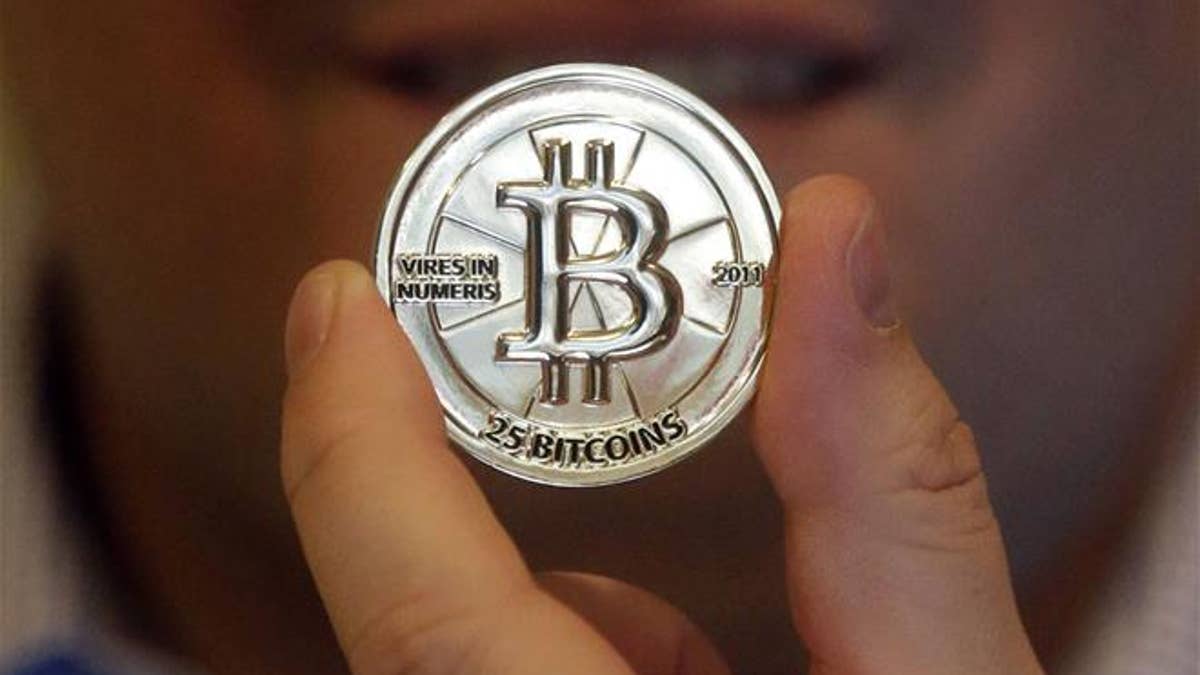
In this April 3, 2013, photo, a 25-bitcoin token is shown. (AP Photo/Rick Bowmer)
Bitcoins may be valuable in tech circles, but to a judge in Miami-Dade County, the virtual money is nothing more than shadow currency. On Monday, Judge Teresa Mary Pooler discarded felony charges against website designer Michell Espinoza, who had been accused of transmitting and laundering $1,500 in bitcoins—an impossible-to-prove charge since bitcoin isn't actual "tangible wealth" that can "be hidden under a mattress like cash and gold bars," per the Miami Herald.
Espinoza had allegedly transferred the bitcoins to undercover detectives for cash, the Washington Post reports; the detectives said they were going to scoop up stolen credit-card numbers with them.
The paper explains how Florida law forbids exchanging money for "illicit" activity such as the credit card fraud Espinoza was accused of trying to abet. But in her eight-page ruling, Pooler noted that while she couldn't "accurately define or describe Bitcoin"—and also couldn't deny that in some (but not all) circumstances it could be "exchanged for items of value," like money—neither could she deem that it was actual money, rendering the charges against Espinoza moot.
Quartz notes how Pooler isn't the only one confused about how to categorize bitcoin, with the legal system still struggling with how to deal with the concept.
Espinoza's lawyer, not surprisingly, called the judge's decision "beautifully written" and said all Espinoza had done was "sell his own personal property." The Miami-Dade state attorney’s office is deciding whether to appeal.
(What about Ethereum, aka "Bitcoin 2.0"?)
This article originally appeared on Newser: Judge Dumps Laundering Charges, Says Bitcoin's Not Real
More From Newser








































